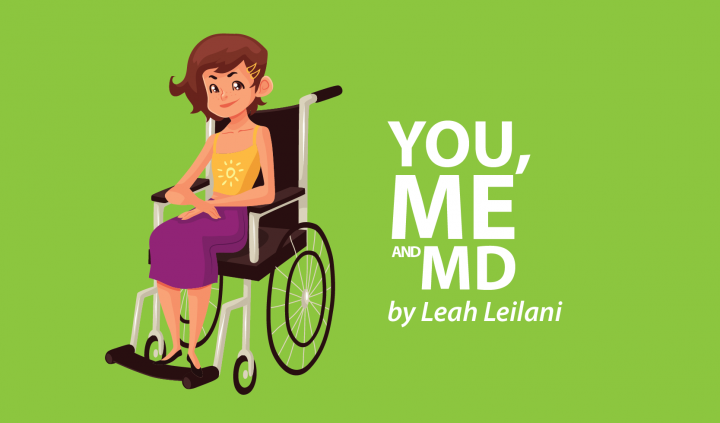Marriage While Raising a Disabled Child: An Interview with My Parents
Written by |

Every once in a while, I am asked, “Who are the most influential and inspirational people in your life?” I could name more than a handful of people, but the truth is, no one in my life has shaped who I am more than my mom and dad.
I knew at a young age that not only was I lucky to have two such amazing people as my parents, but also that they are still happily married to this day is something to marvel at. Growing up, a lot of kids I knew had divorced parents. It was sad to see and something I hoped I would never have to experience.
This November will mark my parents’ 30th wedding anniversary. It is a big milestone to celebrate. Marriage isn’t easy. It takes good communication, unconditional love, and understanding. It’s give-and-take. There is no such thing as a perfect marriage, although having a disabled child can definitely put a marriage through extra-intense tests.
Following is an interview with my parents about how they’ve managed to stay married while raising a child with a disability:
How has having a child with a disability changed your marriage?
Mom: “Our marriage is stronger because it has made us realize what the true meaning of love is. Truly loving someone means that leaving is not an option.”
Dad: “It has made us stronger because we have to work together. Now that I’m retired, I realize what you and your mom go through on a daily basis.”
What advice would you give other married couples?
Mom: “It’s essential for married couples to cherish one another, to not have high expectations, and to say ‘I love you,’ and mean it.”
Dad: “To take time for yourself. Do not complain. Spend as much time as you can together even if you’re in the same room but doing different activities.”
What was your marriage like in the early days compared to now?
Mom: “In the early days, we were stressed because we were both working many hours and raising a family. We expected too much from one another.”
Dad: “We were able to travel more back then. We can still do things, just on a smaller scale. It was fun then, and it still is, just in a different way.”
Has your perspective on marriage changed over the years? How so?
Mom: “Yes, it has. Currently, I think about the longevity of marriage. I think about staying married to my husband until I’m 80. There’s nothing better than a loving marriage.”
Dad: “Yes. I can see now that there’s a good amount of working together for the betterment of our family.”
What do you do for each other that keeps your love alive?
Mom: “Laugh a lot. Dance together. Make my husband feel loved by making our home a comfortable place to be.”
Dad: “The small things like cooking for each other. We’ll go on a date when there’s an opportunity.”
What are two things you’ve learned from 30 years of marriage?
Mom: “Well, I’ve learned to put the well-being of our marriage above everything else. I believe compromise is essential as a way of sustaining a marriage.”
Dad: “You have to work at it all the time, and you have to make sacrifices.”
What would you have liked to have known about being married while raising a child with a disability?
Mom: “I would have liked to have had a mentor or life coach be my sounding board.”
Dad: “I would have liked to have been told how difficult it would be.”
What has been the most challenging part of marriage?
Mom: “My in-laws and their lack of empathy and understanding for mitochondrial myopathy.”
Dad: “Watching my daughter and wife live with muscular dystrophy while trying my best to make life easier for the two of them.”
What has been the most rewarding part of marriage?
Mom: “Knowing that when I’m asked how long we’ve been married, I feel warm and happy inside.”
Dad: “Having married the right woman who has a very kind heart and a calm personality and who has sacrificed a lot to make our family work smoothly.”
Life is a roller coaster, and you never know what it’s going to throw at you next. But having the right person by your side can make everything worthwhile.
***
Note: Muscular Dystrophy News is strictly a news and information website about the disease. It does not provide medical advice, diagnosis or treatment. This content is not intended to be a substitute for professional medical advice, diagnosis, or treatment. Always seek the advice of your physician or another qualified health provider with any questions you may have regarding a medical condition. Never disregard professional medical advice or delay in seeking it because of something you have read on this website. The opinions expressed in this column are not those of Muscular Dystrophy News or its parent company, Bionews Services, and are intended to spark discussion about issues pertaining to muscular dystrophy.







Leave a comment
Fill in the required fields to post. Your email address will not be published.